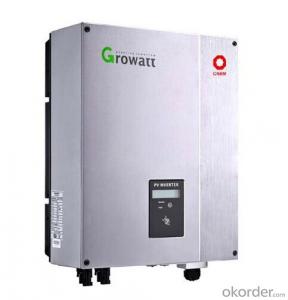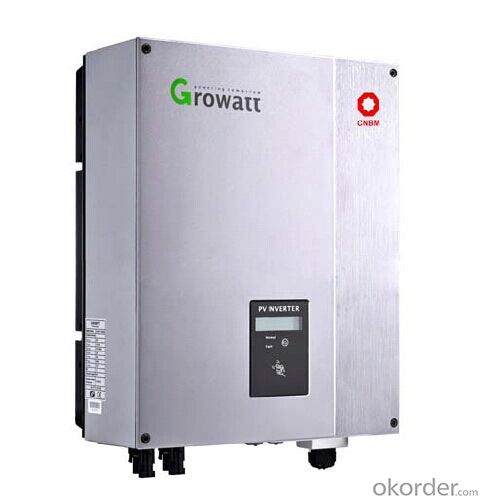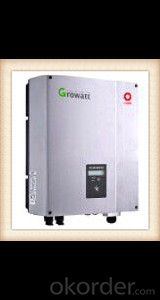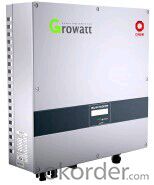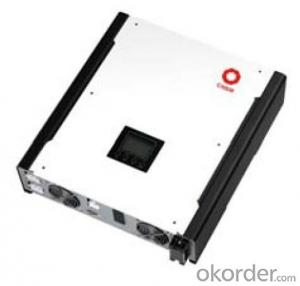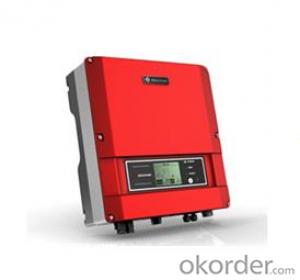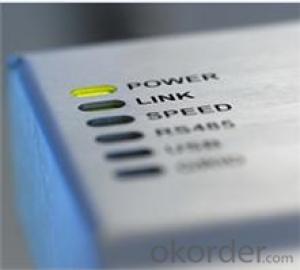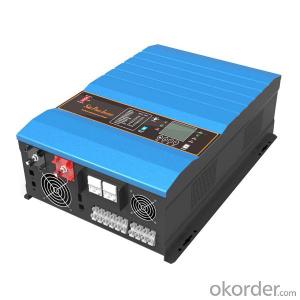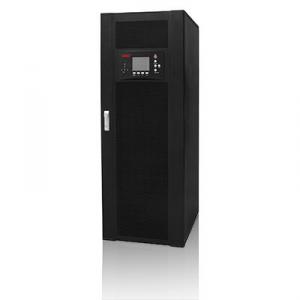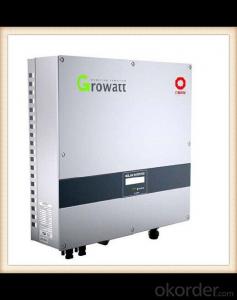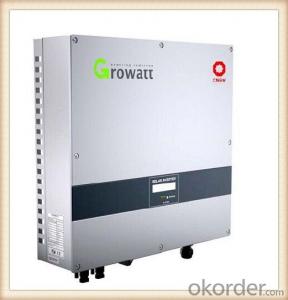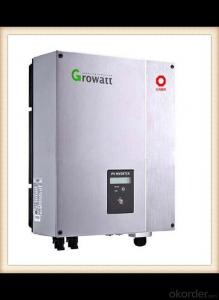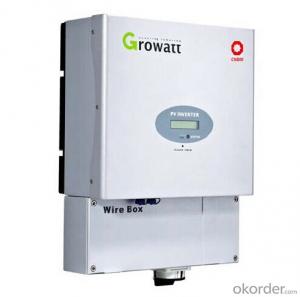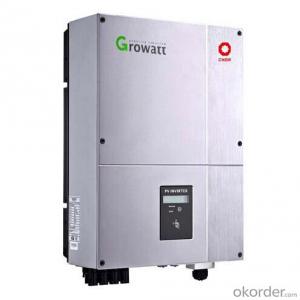Inside Solar Inverter cnbm-5000TL Grid-Tie Solar Inverter with Energy Storage Hybrid Solar Inverter
- Loading Port:
- China main port
- Payment Terms:
- TT OR LC
- Min Order Qty:
- 1000 watt
- Supply Capability:
- 100000 watt/month
OKorder Service Pledge
OKorder Financial Service
You Might Also Like
Introduction
CNBM-1000TL/1500TL/2000TL/3000TL/4000TL/4400TL/5000TL
Pure sine wave output
Microprocessor controlled to guarantee stable charging system
Multiple operations: Grid tie, Off grid, and grid tie with backup
Built-in MPPT solar charger
LCD display panel for comprehensive information
Multiple communication
Green substitution for generators
User adjustable charging current up to 25A
Maximum efficiency of 97.9% and wide
input voltage range
Wide MPPT voltage
Internal DC switch
Transformerless GT topology
Compact design
MTL – String
Multi-MPPT
Certificate: CE, VDE 0126-1-1,
DK5940, G83/1-1, G59/2, RD1663,
EN50438, VDE-AR-N4105, CEI-021,
IEC-62109, ENEL-Guide, UL1741,
UL1998, IEEE1547, CSA
Warranty: 5/10 years
Features
Maximum efficiency of 96.9% and wide input voltage range
Internal DC switch
MTL-String
Bluetooth/RF technology /wifi
Transformerless GT topology
5 years warranty(10years as optional)
Images
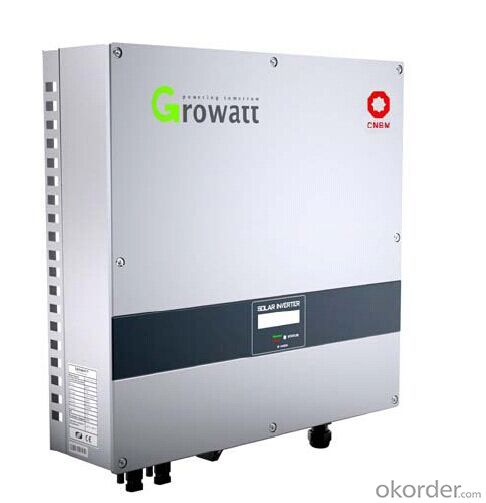
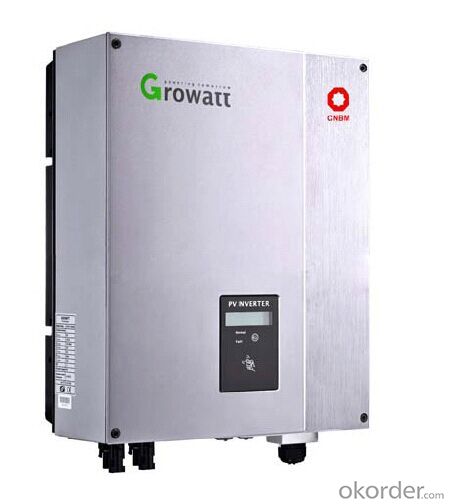
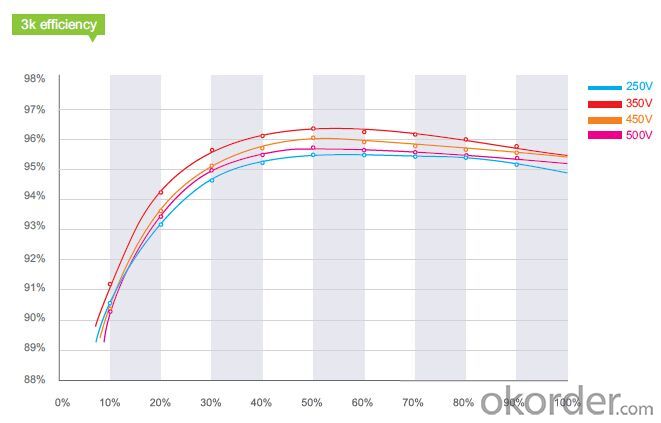
Sepecification
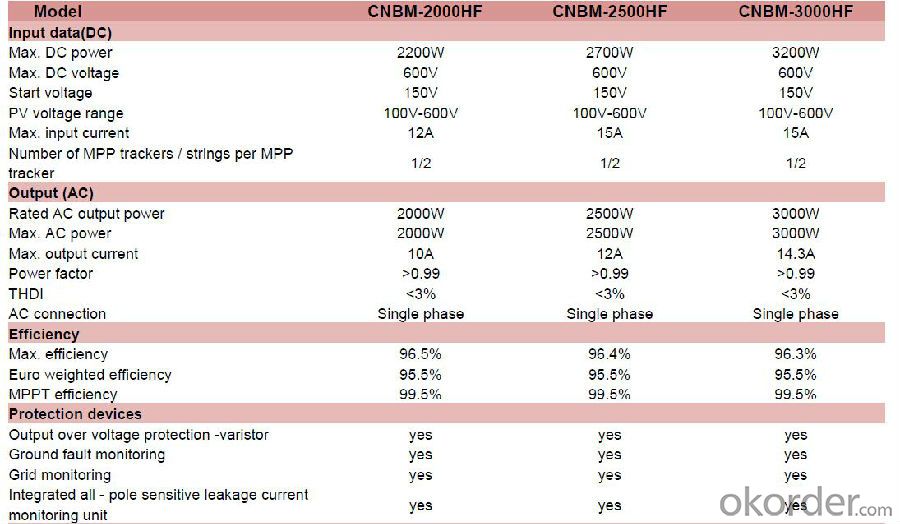
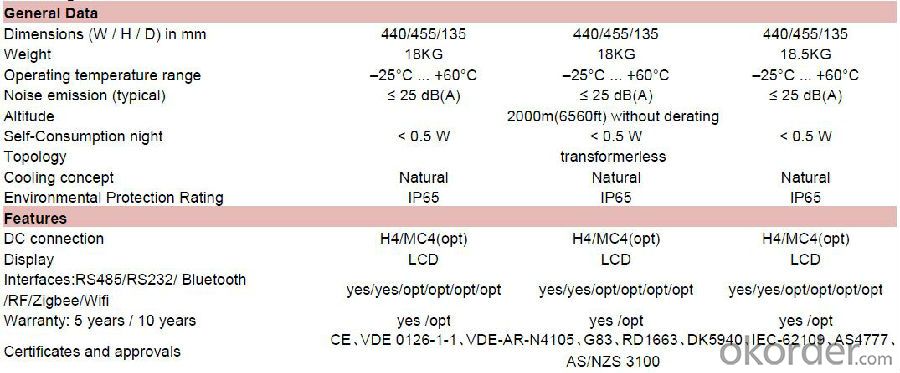
FAQ
Q1: How to choose a right inverter?
A1:Tell us your demand, then our sales will recommend a suitable inverter to you.
Q2: What's the different between inverter and solar inverter?
A2: Inverter is only accept AC input, but solar inverter not only accept AC input but also can connect with solar panel to accept PV input, it more save power.
Q3: How about the delivery time?
A3: 7 days for sample; 25 days for bulk order.
Q4: What is the warranty of inverter?
A4: 5/10 years warranty on CNBM-Solar product.
Q5: How to solve the technical problem?
A5: 24 hours after-service consultancy just for you and to make your problem to solve easily.
Q6: What is the lead time?
A6: One day after reveiving the payment.
Q7: Can I have a sample order?
A7: Yes, we welcome sample order to test and check quality. Mixed samples are acceptable.
Q8: How do you ship the goods and how long does it take arrive?
A8: Express (DHL,UPS,Fedex or TNT), Air or Sea shipment is available depends on your need. It usually takes 3-5 days to arrive except Sea transportation.
- Q: How does a solar inverter handle power surges or fluctuations?
- A solar inverter handles power surges or fluctuations by regulating the flow of electricity. It monitors the incoming power and adjusts the voltage and frequency to match the requirements of the connected devices. In case of power surges, the inverter has built-in protection mechanisms such as surge suppressors or voltage regulators to prevent any damage to the system. Additionally, some inverters feature advanced technologies like Maximum Power Point Tracking (MPPT) that optimize the solar panel's performance and enable better handling of fluctuations in power output.
- Q: What is the role of a galvanic isolation transformer in a solar inverter?
- The role of a galvanic isolation transformer in a solar inverter is to provide electrical isolation between the photovoltaic (PV) array and the inverter's AC output. This isolation is crucial for safety and protection, as it prevents any electrical faults or surges from the PV side from affecting the AC side or the grid. It also ensures that any ground faults or leakage currents are contained within the PV system, minimizing the risk of electric shock and damage to equipment.
- Q: What is the role of a solar inverter in voltage support?
- The role of a solar inverter in voltage support is to convert the direct current (DC) produced by solar panels into alternating current (AC) that can be used by the electrical grid. Additionally, it helps regulate and stabilize the voltage levels, ensuring that the electricity generated from solar power is compatible with the grid's voltage requirements.
- Q: How does a solar inverter handle voltage fluctuations from the battery bank?
- A solar inverter handles voltage fluctuations from the battery bank by utilizing its built-in voltage regulation and control mechanisms. When the battery bank's voltage fluctuates, the solar inverter adjusts its output voltage accordingly to maintain a stable and consistent power supply. This ensures that the electricity generated from the solar panels is converted efficiently and effectively, regardless of any voltage variations from the battery bank.
- Q: What is the role of a solar inverter in a community solar project?
- The role of a solar inverter in a community solar project is to convert the direct current (DC) electricity produced by solar panels into alternating current (AC) electricity that can be used by homes and businesses in the community. It ensures that the solar energy generated is compatible with the existing electrical grid, allowing for seamless integration and distribution of clean energy to the community.
- Q: Are there any government incentives for installing solar inverters?
- Yes, there are government incentives for installing solar inverters. In many countries, governments offer tax credits, rebates, grants, and other financial incentives to promote the adoption of renewable energy technologies, including solar inverters. These incentives aim to reduce the upfront costs of installation and make solar energy more affordable and accessible to individuals and businesses.
- Q: Can a solar inverter be used with different types of power conditioning units?
- Yes, a solar inverter can be used with different types of power conditioning units. Solar inverters are designed to convert the DC power generated by solar panels into AC power that can be used by various electrical devices. They can be compatible with different types of power conditioning units, such as battery storage systems or grid-tied inverters, depending on the specific requirements and setup of the solar power system.
- Q: In a photovoltaic grid-connected project, the role of the inverter is to convert the voltage into AC 220V or 380V for the grid, since the transformer will raise the voltage again
- Unless the power is not issued for their own use, is to be sent to other areas, it needs to boost, such as the western region of those large power stations
- Q: How does a solar inverter communicate with other system components?
- A solar inverter communicates with other system components through various methods such as wired connections, wireless technologies, and communication protocols. It can be connected to the energy management system or smart grid through Ethernet cables or Wi-Fi for data exchange and control. Additionally, it may use communication protocols like Modbus or SunSpec to transmit information to monitoring devices, batteries, or other renewable energy sources within the system.
- Q: How does the size of a solar inverter affect its performance?
- The size of a solar inverter directly affects its performance. A larger inverter can handle more power and can convert a greater amount of DC electricity from solar panels into usable AC electricity for consumption. This allows for higher energy yields and improved efficiency. On the other hand, a smaller inverter may not be able to handle the full capacity of a solar panel system, resulting in power limitations and potential energy losses. Therefore, selecting the appropriate size of a solar inverter is crucial for optimizing system performance.
Send your message to us
Inside Solar Inverter cnbm-5000TL Grid-Tie Solar Inverter with Energy Storage Hybrid Solar Inverter
- Loading Port:
- China main port
- Payment Terms:
- TT OR LC
- Min Order Qty:
- 1000 watt
- Supply Capability:
- 100000 watt/month
OKorder Service Pledge
OKorder Financial Service
Similar products
Hot products
Hot Searches
Related keywords
